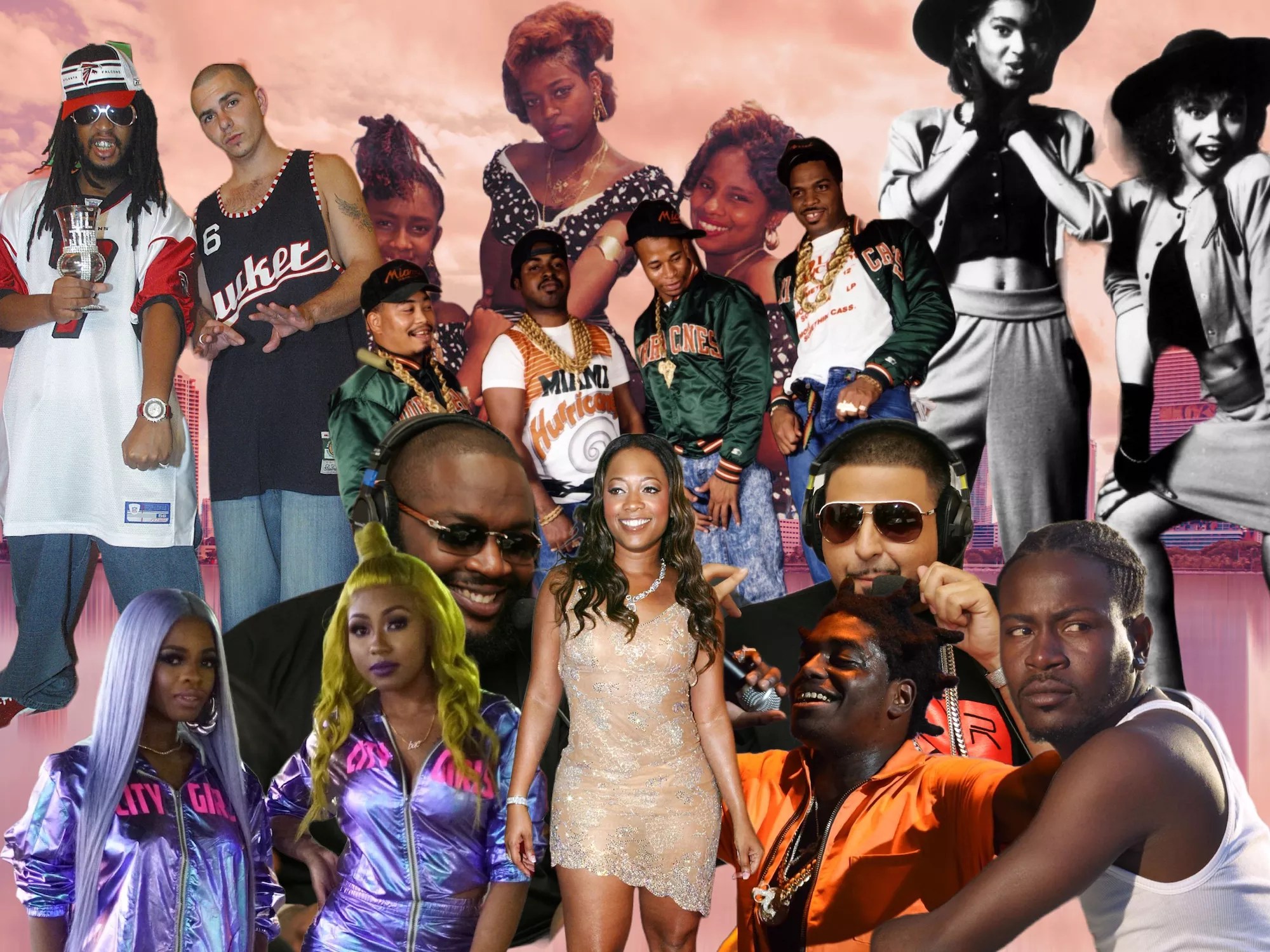
Photo illustration by Marjua Estevez

Audio By Carbonatix
By the time the Bronx was burning in the late 1970s, so was disco music in the face of social demolition. But something else emerged from the ashes of urban decay, and the syncopated rhythms of yesteryear – then tabooed and associated with Black, Latino, and gay society – would serve as a springboard not only for a new American genre but an entire cultural and global movement. On the heels of war, political scandal, student rioting, rising unemployment, and inflation – not to mention all manner of ongoing social injustice perpetrated against women, Black people, people with AIDS, and immigrants – came a new song and dance called hip-hop, and it was here to set us free.
That was 50 years ago today.
Though hip-hop’s oft-repeated origin story historically prioritizes the gift of poetics, we forget that rap’s storm of funk got the people going. From DJ Kool Herc’s original back-to-school parties in the Bronx, where he set up a pair of turntables and a mixer to spin records, to Los Angeles, where G-funk and gangsta music ruled, the genre’s authority was long centered in those two coastal capitals. All that had changed by 1995, when OutKast’s André 3000 stepped up to accept the 1995 Source Award for “Best New Rap Group” and brashly proclaimed, “It’s like this: The South got somethin’ to say.” But for hip-hop history to jump ahead that way glosses over the crucial fact that the South had had plenty to say for years, thanks to the groundbreaking bass and explicit lyrics of Miami’s Luther Campbell.
One of the most controversial albums in history, Uncle Luke and the 2 Live Crew’s As Nasty as They Wanna Be, went down in federal history as the first record to be deemed legally obscene. But in Dade County neighborhoods and cultural springs like Liberty City and Overtown, the 1989 LP was immortalized as an iconic tour de force of booty music and a glimpse of Southern Black Caribbean life that distinguished the southern region of the United States as a hip-hop scene.
“People don’t realize there was no hip-hop in the South. Zero. No Texas, no Georgia, no Memphis, no nothing. I would go do shows in Atlanta, and they would have New York DJs on their radio,” Uncle Luke told the New York Times earlier this year. “So I tell people I created hip-hop in the South. People have a tendency of trying to put me in a box of just Miami. No, I inspired everybody. Tell me, who was before us?”
Luke and the 2 Live Crew were among the first hip-hop acts to crack the mic on mainstream white sensibilities and catch beef with law enforcement. The ultimate genius of Uncle Luke lay in his audacity to use these conflicts to market their music, songs like “We Want Some Pussy” and “Me So Horny.” The latter’s explicit nature led to the group’s initially successful prosecution on obscenity charges and the state of Florida banning the sale of the album. That ban propelled the Liberty City-born rapper and music executive into a fight that eventually launched new legal ground for free speech.
Uncle Luke and the 2 Live Crew (whose members migrated from California and anchored themselves in Miami at Luke’s invitation) are the originators of the Miami bass sound and the architects of what many called the “Dirty South.” Look no further than the contemporary landscape of hip-hop music to see just how wrong many were about Southern rap and Southern rappers. How rhymes cooked in a Southern drawl percolate and ass-shaking can promote resistance in a society bent on snuffing out the people who reflect the genre’s constituents.
It bears noting that 50 years later, hip-hop music is a global phenomenon increasingly spearheaded by women and continuously shaped or informed by the “Miami sound” and Southern culture.
In honor of hip-hop’s 50th anniversary, New Times reflects on Miami’s rap timeline, highlighting the Magic City’s biggest names and brightest moments, from the 2 Live Crew and Slip-N-Slide Records to women in bass and the jook movement.

Luther “Uncle Luke” Campbell and the 2 Live Crew commanded headlines in the media culture wars.
Photo by Michael Ochs Archives/Getty Images
The Birth of Miami Bass 1983-1992
The 2 Live Crew
In hip-hop’s becoming, Luther “Uncle Luke” Campbell and the 2 Live Crew commanded headlines in the media culture wars. The release of their wickedly hilarious and vulgar album As Nasty as They Wanna Be brought them (and Miami) national fame and notoriety. In the early ’90s, Luke took his rhymes and parodies to the floors of Congress and, using the First Amendment to protect his raps, paved the way for DJs and emcees after him. At the height of his popularity, Luke’s business fell apart, but it signaled a new wave of Miami bass artists.
The Dogs
The ’90s hip-hop group consisting of Disco Rick, Keith Bell, Labrant Dennis, and Fergus “Cracked Up” Smith is perhaps best known for “Crack Rock,” the hit single with a schoolyard taunt of “Yo mama’s on crack rock!” While the song is characterized by its upbeat quirk, the record sheds light on the Reagan administration’s War on Drugs and the crack epidemic. The group released three studio albums before disbanding in 1996 after Dennis was arrested for the murders of University of Miami Hurricanes linebacker Marlin Barnes and Barnes’ friend Timwanika Lumpkins, the mother of one of Dennis’ children.
Anquette Allan
Decades before Jacki-O, Trina, and City Girls embodied Miami’s raw and unfiltered rap scene, Anquette Allan rose to popularity with her 1986 Miami bass debut “Throw the P,” a clapback to the 2 Live Crew’s “Throw the D.” Backed by Keia Red and Ray Ray, known as the “Throw the P” girls, Anquette’s cheeky and bawdy bars established her as one of the first female predecessors of Miami bass and rap. Under the tutelage of Uncle Luke and signed to his Luke Skyywalker label, Anquette went on to release her 1988 debut, Respect, which contained popular hits like “Shake It (Do the 61st),” “Janet Reno,” “Ghetto Style,” and “I Will Always Be There for You,” the last of which peaked at number 76 on Billboard‘s Hot R&B/Hip-Hop Singles and Tracks in 1989.
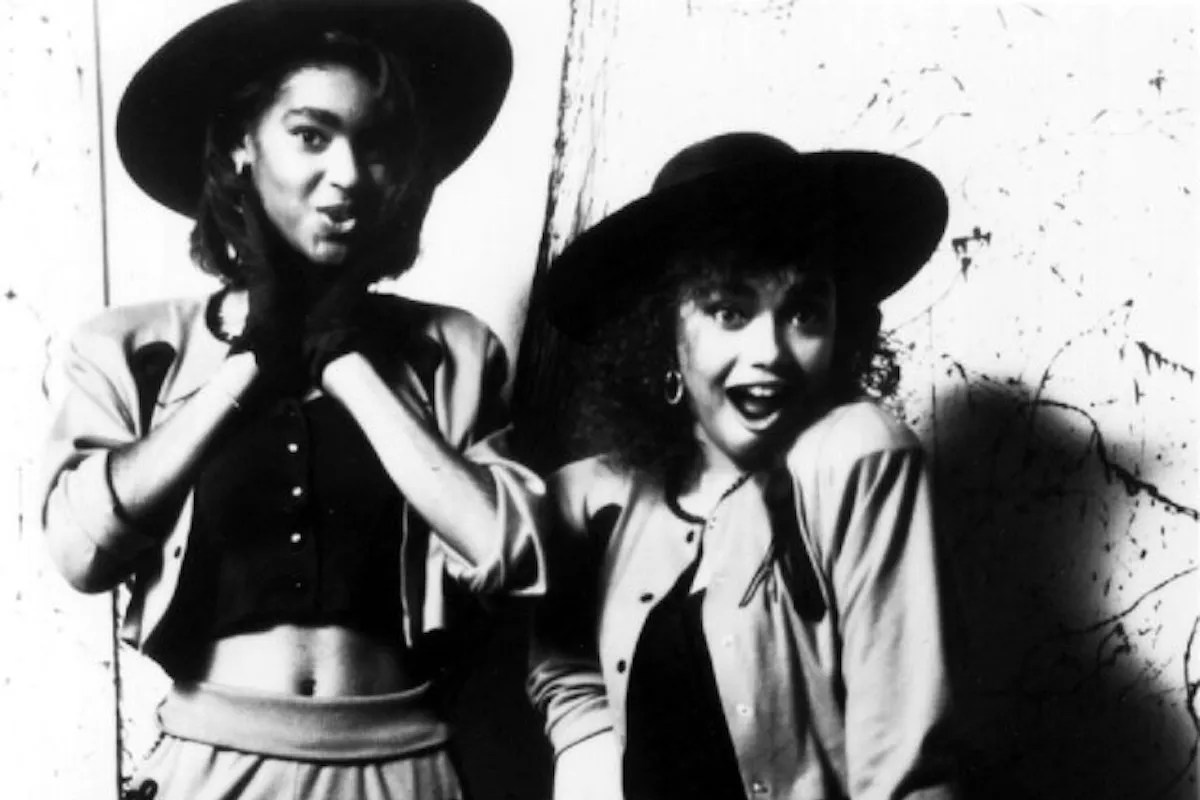
Coconut Grove natives Bunny D and Lady Tigra came together to form L’Trimm, releasing their debut single, “Grab It!,” in 1988.
Atlantic Records photo
MC Luscious
MC Luscious (née Rosalyn McCall) began rapping in the early ’90s when her cousin, producer Steve Tempo, recruited her for a remake track titled “Boom! I Got Your Boyfriend.” Tempo previously had released the original single “Boom! I Got Your Girlfriend” with his group, the Boys From the Bottom. MC Luscious followed that hit with her 1991 debut album Boom!, which featured two versions of “Boom! I Got Your Boyfriend” along with two additional singles, “Ride That Monkey” and “It’s My Thang.” In 1993, she released a follow-up, Back to Boom, and in 1995 brought her third album, Lollypop. Luscious’ last release was her 1997 rendition of Freak Nasty’s “Da’ Dip.”
L’Trimm
A Miami bass duo comprising Coconut Grove natives Bunny D and Lady Tigra, L’Trimm released its debut hit single “Grab It!” in 1988, followed by one of the pair’s most popular songs, “Cars With the Boom,” an ode to Miami’s car culture and subwoofers. The single peaked at number 54 on Billboard‘s Hot 100, and in 2008 it was ranked number 95 on VH1’s 100 Greatest Songs of Hip Hop. In 2016, “Cars With the Boom” was number 100 in Rolling Stone‘s Top 100 Hip Hop Songs of All Time. The popularity of L’Trimm’s second album, Drop That Bottom, led the Source to recognize the pair as one of its “Hip-Hop Goddesses of the Month” in 1989. L’Trimm disbanded in the early ’90s after the release of its third album, Groovy, but Bunny D and Lady Tigra will permanently be embedded in Miami’s rap pantheon as the infectious pop-rap group that helped popularize Miami’s unique regional sound.
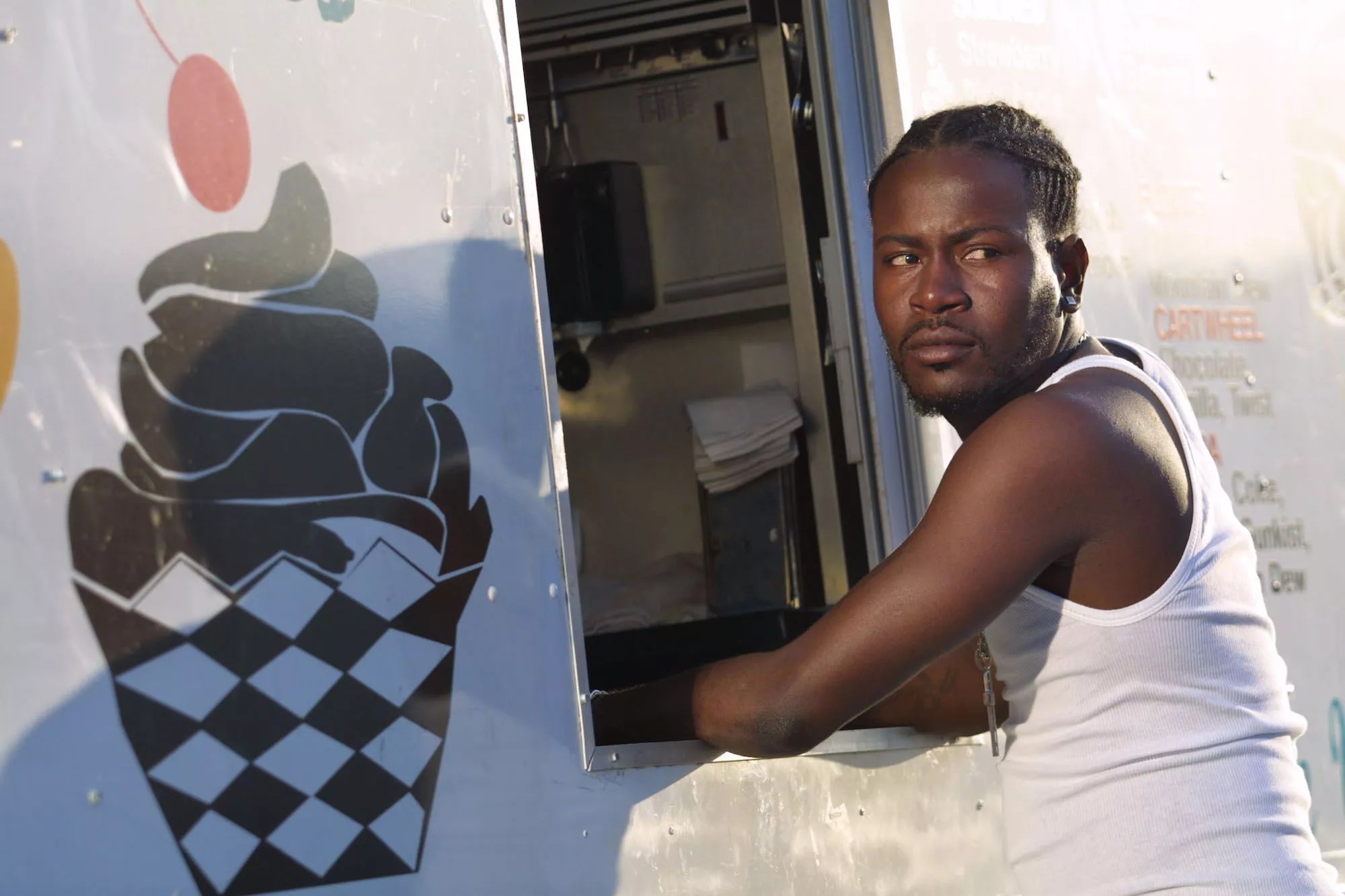
Trick Daddy on the set for the music video for “I’m a Thug” in 2001.
Photo by Scott Gries/Getty Images
Everyone’s Shaking to Slip-N-Slide 1993-2002
DJ Uncle Al and the Sugar Hill DJs
Hailing from Liberty City, DJ Uncle Al (born Albert Moss) was one of the most prolific Miami DJs in the ’90s to early 2000s. His call-and-response style and his iconic battles with the popular Bass crew Jam Pony Express paralleled the Jamaican toasting style of early dancehall DJs and sound-clash culture, which also influenced hip-hop pioneer DJ Kool Herc. Known for the block parties and anti-drug concerts he spearheaded along with his crew, the Sugar Hill DJs, he quickly became a staple in the Miami bass and party scene. While tension grew between local law enforcement and Black residents, he became deeply embedded in his community and would promote peace and nonviolence during his sets via his signature “Peace in tha Hood” slogan. He also became a guest speaker on 99 JAMZ in Opa-locka. His life was tragically cut short when he was shot and killed in front of his home on September 10, 2001, at age 32. DJ Uncle Al’s innovative style is the root of local South Florida DJs and artists. His influence is memorialized in the unique regional production that defines Miami hip-hop.
Mother Superia
Before Trina asserted herself in the mainstream with her salacious delivery, Mother Superia (born Sonya Levette Spikes) became known for her lyrical prowess in the ’90s. Compared with the likes of MC Lyte and Queen Latifah, her sharp, aggressive flow and principled lyrics challenged the notion that Miami’s hip-hop scene was only party music. She notably coined the phrase “the Bottom” to describe Miami on her first breakout hit, “Rock Bottom.” She signed a deal with Island Records subsidiary 4th & Broadway in the mid-’90s and released her 1997 debut album, Levitation. Earning accolades from KRS-One and GZA (who directed her “Most of All” video), her debut album featured production from Redman, Blastmasta, and other hip-hop luminaries. Although Levitation was the last album she released, Mother Superia ushered in a new wave for female rap in Miami.
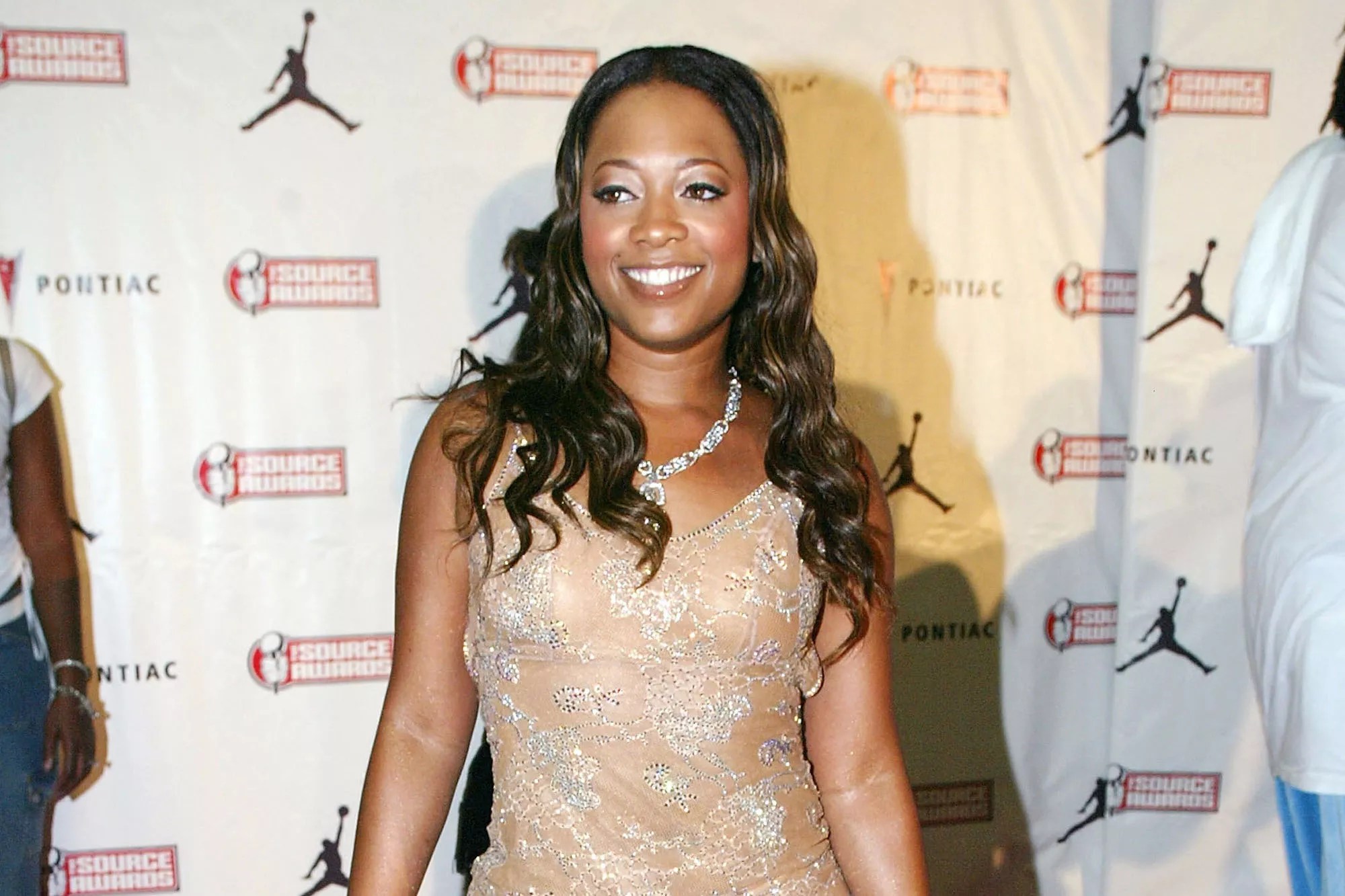
Trina is one of the most consistent women in rap, with a bevy of top-charting songs.
Photo by Scott Gries/Getty Images
JT Money and the Poison Clan
JT Money began his career under the tutelage of Uncle Luke, who discovered him at a Miami talent show. He signed to Luke Records in 1990, and in that same year, he released his debut album, 2 Low Life Muthas, alongside group member Debonaire. After Debonaire departed, Poison Clan released a 1992 follow-up, Poisonous Mentality, which featured its first hit, “Shake What Ya Mama Gave Ya.” Poison Clan put out two more albums between 1993 and 1995 and a string of club hits, including “Fire Up This Funk,” “The Girl That I Hate,” and “Don’t Sleep on a Hizzo.” In 1999, JT Money released his solo album, Pimpin’ on Wax, which featured his biggest hit single, “Who Dat,” featuring Solé. The song perched at the number-five spot on the Billboard Hot 100 and won the “Top Rap Single” at the 1999 Billboard Music Awards.
Trick Daddy and Trina
Founded by Ted Lucas in 1994, Slip-N-Slide Records is a premier hip-hop label in Miami. Responsible for the mainstream success of local rappers like Trick Daddy, Trina, Rick Ross, and Pitbull, Slip-N-Slide can be credited for the global rise of Miami’s most iconic rappers. The label rose to prominence alongside Trick Daddy’s 1997 debut album, Based on a True Story, and his 1998 successful sophomore follow-up, www.thug.com, which propelled Trina into the mainstream with the hit single “Nann,” which peaked at number 62 on the Billboard Hot 100 and number three on the Rap Songs chart. Trick Daddy and Trina went on to release their hit records “Shut Up” and “Take It to da House” before Trina released her debut album, Da Baddest Bitch.
With more than two decades under her belt, Trina is one of the most consistent women in rap, with a bevy of top-charting songs. Her brash lyrics and distinct voice embraced the same style as bass music, but her versatility made her a timeless mainstay in the rap game. Trina’s debut more than 20 years ago informed the lineage of women currently dominating rap, including Latto, Cardi B, Megan Thee Stallion, and Opa-locka and Liberty City’s City Girls.
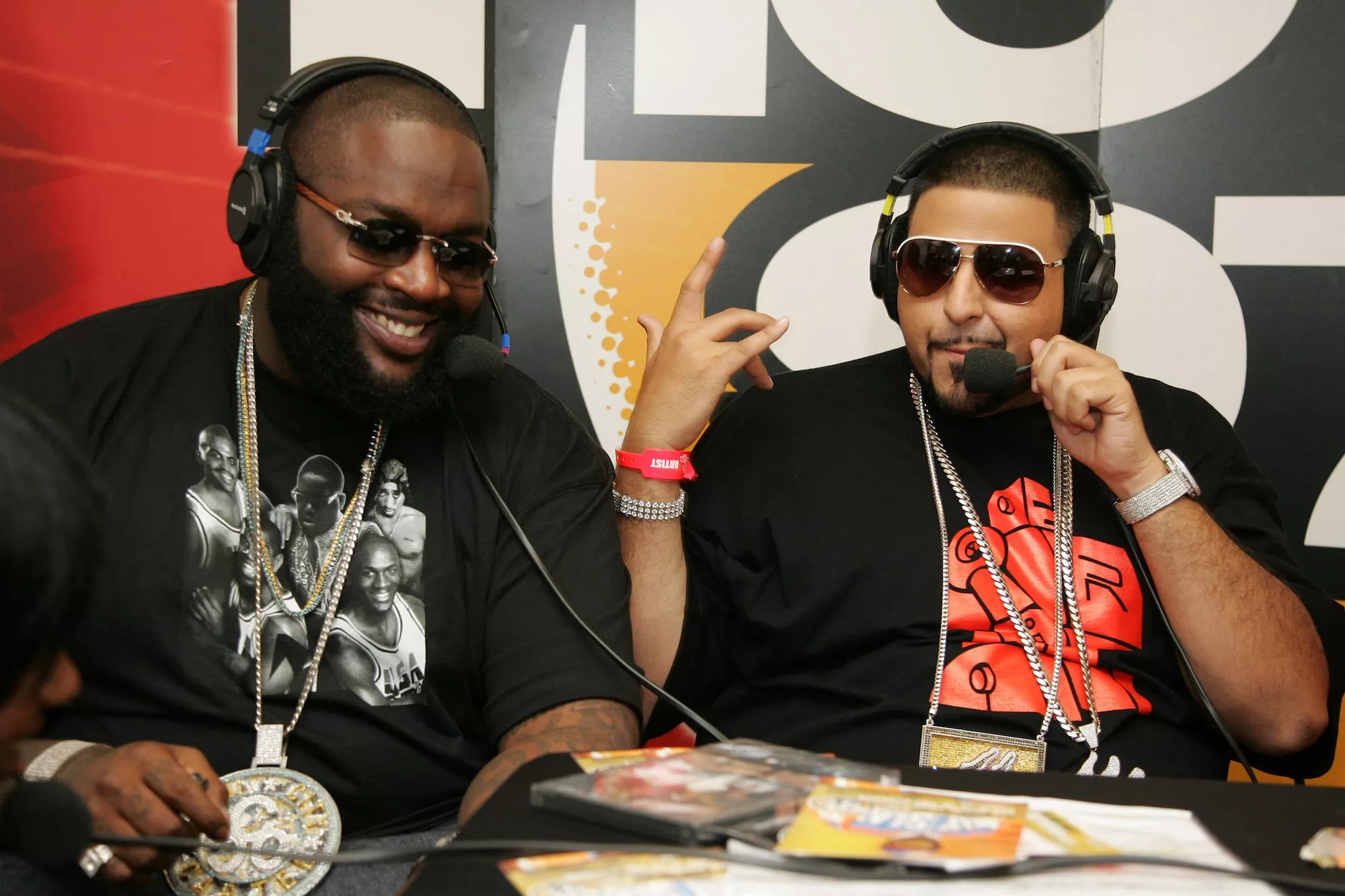
Rick Ross and a young DJ Khaled
Photo by Bryan Bedder/Getty Images
Miami Goes Jook 2003-2012
Miami’s Jook Movement
While the 1980s and ’90s were defined by the influence of bass music and local DJ crews, the early 2000s underground scene shifted to “jook” music. DJs and artists like DJ Chipman, Ice Berg, Piccalo, Grind Mode, Bizzle, Black Dada, and Ball Greezy dominated the early 2000s underground era with Southern hip-hop-influenced production and sped-up remixes. Anthems like Black Dada’s “Imma Zoe” soundtracked neighborhood parties and times and embodied Haitian pride and influence on South Florida’s evolving regional sound. As mainstream artists like Plies, Rick Ross, and Pitbull represented Miami globally, local artists and DJs were the pulse of Miami’s subterranean hip-hop and dance culture. Songs like DJ Chipman’s “Beam Ahh,” Ice Berg’s “Naked Hustle,” and Bizzle’s “Lip Bitin’ Animal” are integral to Miami’s late-2000s/early-2010s era.
Jacki-O
A Liberty City native, Jacki-O (née Angela Brookins-Gillispie) scored her breakout hit in 2003 with her unabashed single “Pussy (Real Good).” The following year, she released her debut album, Poe Little Rich Girl, which included her three back-to-back singles, “Fine,” featuring Ying Yang Twins, “Sugar Walls,” and “Break You Off,” featuring Jazze Pha. She collaborated with esteemed producers and rappers like Timbaland, Busta Rhymes, Ghostface Killah, Ying Yang Twins, and DJ Khaled. Her sophomore mixtape, Jack-Da Rippa, was released four years later in 2008, and in 2009, she released her third project, Lil Red Riding Hood. Although she announced her retirement from rap in 2014, Jacki-O’s edgy, no-holds-barred persona made her an undeniable hitmaker in the 2000s.

Before he was Mr. Worldwide, Pitbull was singing about “Culo.”
Photo by Ronna Gradus/Getty Images
Pitbull
Inspired by Miami bass music, Cuban-American rapper and Miami native Pitbull, AKA Mr. Worldwide, signed to Uncle Luke’s Luke Records in 2001 to jumpstart his rap career. He was featured on Uncle Luke’s 2001 album, Something Nasty, and in 2002, he scored a feature on Lil Jon’s Kings of Crunk LP. In 2004, he released his debut album, M.I.A.M.I, which featured his Lil Jon and Diaz Brothers-produced hit “Culo.” He also collaborated with the Ying Yang Twins on the “Shake” single, which climbed to number 12 on Billboard‘s Hot Rap Songs chart. Since releasing “Culo,” Pitbull has led Miami’s Latin hip-hop sound and become one of the most globally recognized artists from South Florida. His versatile discography and influence expand beyond Miami, but the essence of his music makes him Mr. 305.
Rick Ross and Maybach Music
Raised in Carol City, Rick Ross came onto the local rap scene as “Teflon Da Don.” After signing to Suave House Records, he signed with Slip-N-Slide before releasing his 2006 debut album, Port of Miami, which peaked at number one on Billboard‘s 200 album chart. The album’s second hit single, “Push It,” is one of his most popular songs to date. His 2008 and 2009 follow-ups, Trilla and Deeper Than Rap, respectively, enjoyed similar success. His most iconic records include “Hustlin’,” “Aston Martin Music” (featuring Drake and Chrisette Michelle), “Stay Schemin’,” “The Boss” (featuring T-Pain), and “Diced Pineapples” (with Wale and Drake). In 2008, he founded his Maybach Music label, whose current roster includes Wale, Meek Mill, Teedra Moses, and Gunplay.
DJ Khaled and We the Best
Born and reared in New Orleans, DJ Khaled got his start on pirate radio, an instrumental element of Miami’s hip-hop culture. He moved to Miami in 1998 to co-host The Luke Show on 99 JAMZ and by 2003 was hosting The Takeover, his weeknight show. His 2006 debut album, Listennn… the Album, debuted on the Billboard 200 chart at number 12, while his massively popular single “We Takin’ Over” from his sophomore release climbed to number 28 on the Billboard Hot 100 chart. His subsequent albums, We Global and Victory, which featured his triple platinum anthem “All I Do Is Win,” were released under his We the Best Music Group label.
Founded in 2008, We the Best’s current roster includes Mavado, Flipp Dinero, and Vado. The label helped catapult Deerfield Beach native Ace Hood to household-name status in 2008. We the Best released Hood’s debut, Gutta, which featured his smash hit “Cash Flow,” and his sophomore effort, Ruthless, before the parties parted ways. Today, Khaled is a hip-hop titan. Whether sharing positive mantras on social media or recruiting artists for his collaborative albums, the Grammy winner has cemented his legacy as the rambunctious DJ who helped take South Florida’s rap scene to global heights.

XXXTentacion’s career was only getting started when he was murdered at age 20 in 2018.
Photo by Alex Markow
SoundCloud Transforms South Florida Rap 2013-2023
XXXTentacion
Raised in Lauderhill, XXXTentacion was a leading figure in Florida’s mid- to late-2010s SoundCloud rap era. Born Jahseh Dwayne Ricardo Onfroy, the Jamaican American rapper coalesced with fans online through his emotive, distorted, emo, and grunge songs. In 2014, he established the collective Members Only with Orlando rapper Danny Towers and Miami producer DJ Scheme before dropping his breakout single, “Look at Me,” in 2017. His vulnerable, angsty lyrics were relatable to younger fans. His debut album, 17, is certified Triple Platinum, and his second album, ?, debuted in the top spot on Billboard‘s 200 chart shortly before he was shot and killed outside a motorcycle dealership on June 18, 2018. Although his life was cut short when he was only 20, his music remains the blueprint for South Florida’s emo, punk, and alt-rap. On the opposite side of the party-inducing bass sound, XXXTentacion’s SoundCloud era helped open up a lane for artists challenging hip-hop’s sonic confines.
Ski Mask the Slump God
Born Stokeley Clevon Goulbourne in Fort Lauderdale to Jamaican parents, Ski Mask the Slump God was on top of the SoundCloud wave. A gifted lyricist, his cartoon-referencing wordplay is clever, and his cadence and sometimes rapid-fire delivery is on par with predecessors like Busta Rhyme and Twista. He rose to prominence alongside XXXTentacion and their collective Members Only. In 2017, he released the singles “BabyWipe” and “Catch Me Outside,” which were featured on his RIAA gold-certified mixtape You Will Regret. His follow-up mixtape, Beware the Book of Eli, peaked at number 50 on the Billboard 200 chart, and his proper studio debut, Stokeley, topped out at number six on the Billboard 200 when it dropped in 2018.
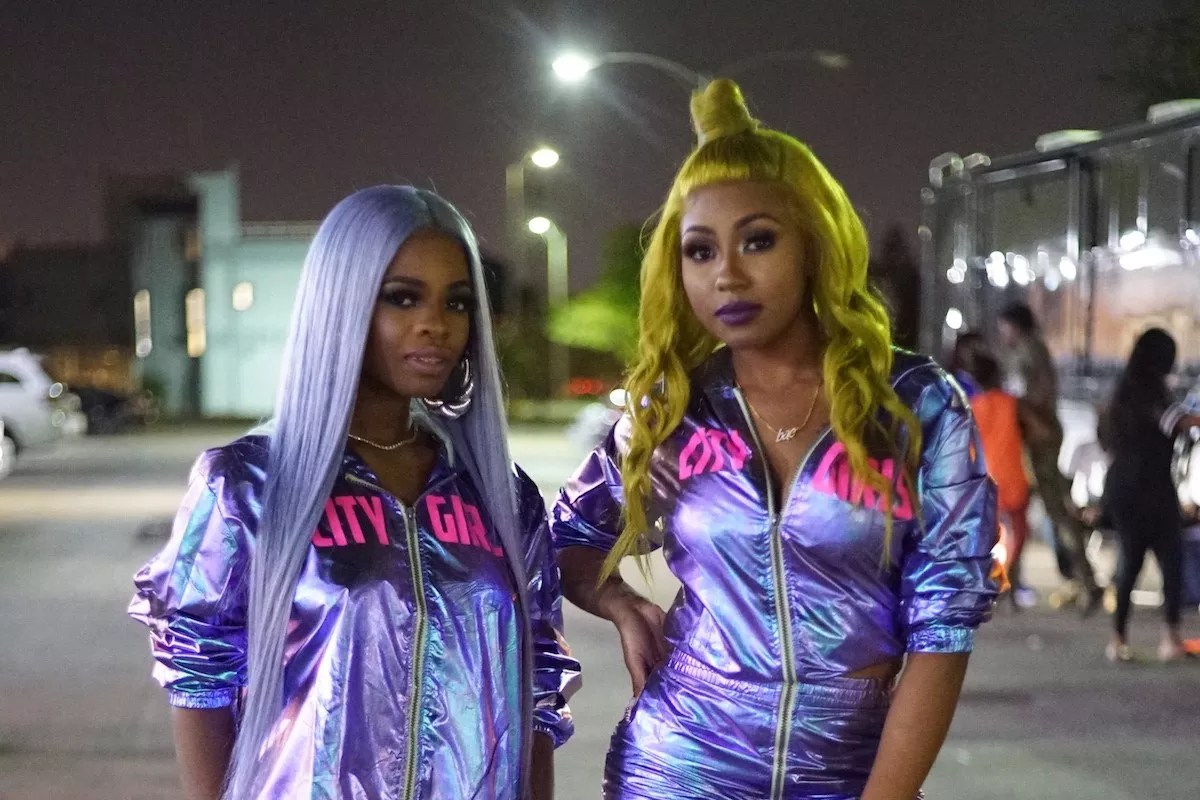
City Girls are a culmination of all the women rappers before them.
Photo by Angel “TrackStar1323” Cabrera
Kodak Black
Born and raised in Pompano Beach, Kodak Black gained fame in 2014 for his “No Flockin'” single. His 2017 top-charting debut album, Painting Pictures, featured his first Top 10 single, “Tunnel Vision,” and in 2018, his second album, Dying to Live, and its lead single, “Zeze” (featuring Travis Scott and Offset) debuted to top spots on Billboard‘s Hot 200 and Hot 100 charts. Of Haitian descent, Kodak Black combines his Broward drawl and dialect into his syrupy inflections. Despite countless controversies and jail stints, he has climbed the ladder to reach a near-untouchable status in rap. Kodak Black’s appeal epitomizes the ongoing influence of the jook movement: He distilled a niche, cultural sound to global, top-charting status.
City Girls
Hailing from Liberty City and Opa-locka, respectively, the rap duo of Yung Miami (née Caresha Romeka Brownlee) and JT (née Jatavia Shakara Johnson) took the scene by storm with an uncredited guest appearance on Drake’s chart-topping 2018 single “In My Feelings.” City Girls immediately distinguished themselves as voices out of the 305 and signed to Quality Control Music, releasing a debut mixtape, Period, before dropping studio albums Girl Code (2018) and City on Lock (2020). The former boasts Platinum-certified Top 40 singles “Twerk” with Cardi B and the braggadocious “Act Up.” The pair’s debut studio track, “Fuck Dat Nigga,” features a prominent sample of fellow Florida rapper Khia’s cult classic “My Neck, My Back (Lick It)” and racked up hundreds of thousands of plays. Released in January 2018, the official music video for the song features an appearance from Miami rap veteran Trina. To date, it has logged more than 80 million views.